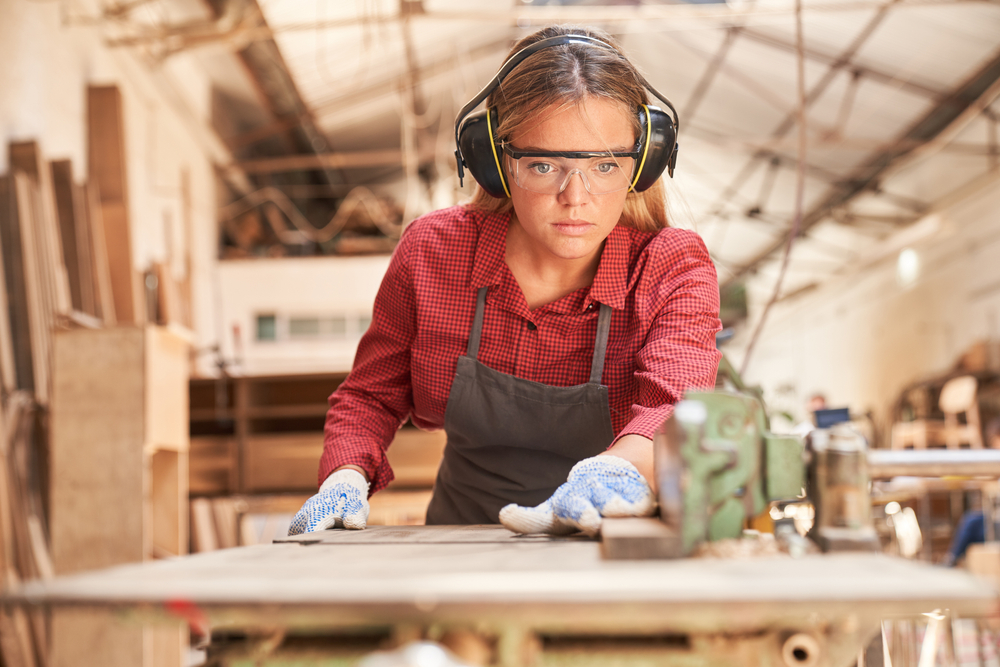
Hearing protection plays an essential role in safeguarding your ears against damaging noise levels, whether at work, concerts, or even during DIY projects at home. However, you could be left exposed to potential risks if any one of several possible factors interferes with your hearing protection’s effectiveness. Understanding these issues can help you address them proactively and optimize the advantages of your protective gear.
Common reasons why hearing protection falters
Even when you observe best practices, unforeseen challenges can arise. You use your earmuffs faithfully at work, use earplugs at concerts, and stay away from noisy situations whenever you can. However, the effectiveness of your hearing protection can be reduced by specific variables. Luckily, by acknowledging these common pitfalls, you can make educated adjustments to ensure your hearing is always well-protected.
1. Selecting the wrong hearing protection for the circumstance
Hearing protection isn’t one-size-fits-all, and choosing the wrong type for a given environment can reduce its effectiveness.
There are generally two main categories of hearing protection:
- Earplugs: Small foam or rubber plugs that insert tightly into the ear canal.
- Earmuffs: Larger, headphone-like device that covers the whole ear.
Each kind has its ideal use case:
- Earmuffs are better for settings with periodic noise, like a construction site where machinery starts and stops constantly.
- Earplugs are appropriate for settings with constant noise levels, like factory floors or airplane cabins.
If you’re in a quiet setting and need to temporarily remove your hearing protection, earmuffs are easier to handle. However, earplugs, especially disposable ones, can be easily misplaced, leaving you exposed when noise levels rise again. The first step towards successfully protecting your hearing is to choose the correct type of hearing protection.
2. Fit and function are affected by anatomy
Some devices will fit better than others depending on the size and shape of the person’s ears. An average sized ear is what basic earplugs and earmuffs are designed for, but a more individualized solution may be required for your ear’s anatomy.
- Smaller ear canals: If you have narrow ear canals, standard-sized earplugs might not create an effective seal, decreasing their noise-blocking capabilities.
- Larger ear structures: Bigger ears can make earmuffs uncomfortable, causing gaps in the seal that allow noise to penetrate.
Ill-fitting hearing protection can lead to frustration and a desire to abandon their use completely, putting your hearing in danger. Think about buying custom-fitted earplugs or professionally fitted earmuffs if you spend a great deal of time in loud settings. These personalized solutions provide optimal comfort and effectiveness, ensuring you stay protected in any situation.
3. Neglecting regular maintenance and replacement
In order to stay effective, hearing protection devices need to be correctly maintained just like any other devices do. Wear and tear, incorrect cleaning, and missing replacement schedules can all jeopardize their ability to protect your ears.
The following are a number of tips on how to maintain hearing protection:
- Clean Properly: Earplugs and earmuffs are exposed to earwax and other debris, which can accumulate over time. In order to safely and effectively clean your earplugs or earmuffs, consult the manufacturer-recommended cleaning instructions.
- Inspect for Damage: Inspect the elastic band on earmuffs frequently. A loose or stretched band can decrease their snug fit, diminishing their noise-blocking capacity.
- Replace Cushions: Over time, earmuff cushions can lose their pliability. In order to maintain a proper seal, replace the cushions when needed.
Neglecting these simple maintenance tasks can render your hearing protection less effective or even unusable. Regular upkeep is crucial to extend their lifespan and ensure consistent performance.
The advantage of a hearing specialist
Make an appointment with us for an evaluation if you think that your hearing protection may not be working. After examining your devices, we can help you with a customized solution that will work best for you.
Keeping your hearing safe is a commitment that lasts a lifetime and it’s crucial that you do it with the proper tools. You can protect and preserve your hearing for many years by addressing these common challenges.